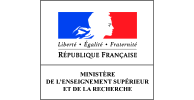Theme 2 : The digital life on campus
Co-chairs
- Khadija DIB (MINES)
- Thierry BEDOUIN (UNR Paris Île de France)
- Patrice ROTURIER (Université Européenne de Bretagne)
Description
One of the challenges of higher education institutions is to meet the great difficulty of universities to manage the pace of student learning, in a training ground. Today, digital technologies are changing in depth and shape modes of living, working and production students. In this context, the challenge for all institutions is to take advantage of these technologies to increase performance and efficiency in particular universities may find there way to facilitate access to knowledge and knowledge of a number increasingly important to students by the possibilities offered by these technologies. In this approach offers them to come closer to the demand of their public hearing. Digital, the flexibility it provides in the modes of transmission of knowledge and learning can contribute greatly to achieve this necessary connection. But the patterns of development and deployment must be compatible with the operating mode of the university, with students’ expectations as well as for teachers and students. Each student, teacher, researcher should be able to access services and digital resources, training, documentation from anywhere, anytime, from any device (laptop, digital tablet, mobile phone , …)
Certainly, for many years, the digital campuses have emerged, and digital environments and resources, significant efforts have been made accessible to meet institutionally that everyone can have everything in his family or social life .. Today’s technology should enable each student to have all that is necessary for its curriculum in line with their lifestyle today impregnated societal culture of sound, image and communication network .
The apprehension of more and more prevalent these technologies to make new generations of digital actors naturally, but what responses they receive from schools, how their lives on campus today she does not question their motivation natural, how new generations less approach and communicate with those generations that could be called the Third Kind ?
How the implicit tendency to abolish the digital distances it is implemented, it becomes stronger and a strategy to live and exist in the overall geography and establishments in a world where competition is now present and the place or the exception should be retained ?
The world of immediate information, the large spread it is now everywhere, the level of demand is growing to have this information current and reliable in a dimension where the flow of information is so important that it becomes necessary to better individualize it to make it “unmanageable” more easily.
The digital questions the practices and ways to exchange and build new relations, higher education must take into account to make a real weapon accessibility of all the training and knowledge while maintaining the create a technological breakthrough, but by supporting individuals and their services by providing suitable
The challenge is to promote the use of digital technologies, to become a means of struggle for equality of opportunity, it offers tools for adjustment and adaptation to stress individual student employees, sick or suffering with disabilities. Indeed the development of digital uses of the university is a real issue, which goes far beyond issues related to educational subjects taught and technical aspects of these technologies. This is mainly to ensure that young people, through daily use at the university to acquire knowledge and skills to new modes of production and organization of the intellectual, social and economic enable these technologies to become active actors and performers in the digital society.
The CIUEN 2012 is the place to discuss these points:
- Digital for Education
- Digital for Research
- What digital services for real estate?
- What real estate for digital services?
- Digital as facilitator of the users’ lives
- Integrating mobility and terminals any time, anywhere, any device
- Digitals services offers
- Accessibility for students and persons with disabilities and digital










